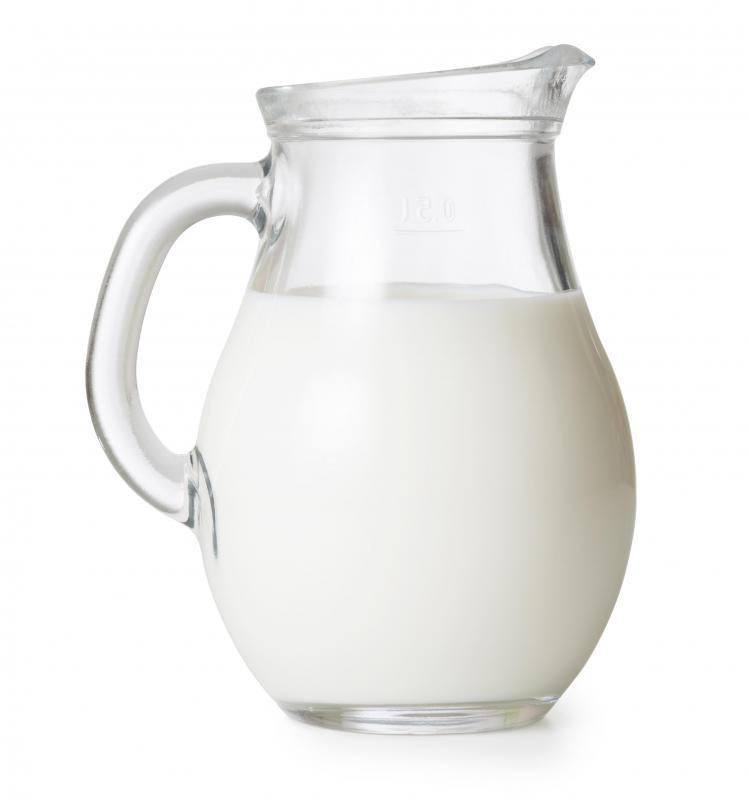At WiseGEEK, we're committed to delivering accurate, trustworthy information. Our expert-authored content is rigorously fact-checked and sourced from credible authorities. Discover how we uphold the highest standards in providing you with reliable knowledge.
What is Distention?
Distention is the creation of internal pressure that causes the swelling and enlargement of specific organs, which interferes with their ability to function. Treatment for it is dependent on the type, severity, and location of the problem. Most cases can be alleviated with lifestyle changes, but in some instances, the pressure can be an indication of a more serious condition.
Abdominal distention is a common condition that usually results from overeating. Individuals with inflammatory bowel disease (IBD) often experience abdominal swelling and discomfort caused, in part, by the collection of gas in the digestive tract. Eating fibrous foods, such as vegetables and fruits, and dairy products, especially by lactose intolerant individuals, can also contribute to gas and pressure. Lifestyle changes, such as dietary adjustments and using stress reduction techniques, generally help with alleviating swelling and discomfort.

The abnormal enlargement of the bladder due to urine accumulation, resulting from an inability to excrete urine, is known as bladder distention. Medical causes for this problem include bladder cancer, prostate cancer, and bladder stones, known as urethral calculi, which cause interrupted urine flow, leading to the incomplete emptying of the bladder. Inadequate drainage or irritation associated with catheter usage may also result in urine retention.

An individual with an enlarged bladder may be asymptomatic, meaning exhibiting no symptoms, until the continued expansion of the bladder creates discomfort. In acute cases, however, the individual may experience sudden symptoms. Treatment for this condition includes catheterization or surgery when there is an obstruction of the urinary tract.
Conditions associated with vein distention include pericarditis, a swelling and inflammation of the sac surrounding the heart, and congestive heart failure. Both conditions can affect the jugular vein, disrupting the return blood flow to the right atrium of the heart, causing the vein to bulge. When a blockage occurs and blood backs up in the veins, fluids build up in the tissues of the body, which can lead to fluid overload and a condition known as edema, or swelling.

Acute pericarditis, also known as a heart infection, is most common and usually treatable with medication alone. Symptoms include muscle pain, feelings of weakness and fatigue, and a sharp, stabbing pain localized on the left side of the chest. Causes of infection include fungi exposure, bacteria, and drug reactions. Pericarditis can be treated with an aspirin regimen and, in cases where bacterium is the culprit, antibiotics. Two complications — cardiac tamponade, a fluid buildup in the sac surrounding the heart, and constrictive pericarditis, a thickening and scarring of the heart sac — can result if this condition is left untreated, and they require hospitalization and surgery.

Congestive heart failure is a chronic condition that affects the heart's ability to pump blood to the body's organs. Abnormal heart rhythms, called arrhythmias, can contribute to the development of congestive heart failure, as can a heart attack and heart defects at birth. Symptoms include fatigue and weakness, heart palpitations, and weight gain resulting from fluid retention. Heart failure is an irreversible condition but can be managed with treatment, including lifestyle changes, medications, and surgery.
AS FEATURED ON:
AS FEATURED ON:
















Discussion Comments
@giddion – Abdominal pain and distention are symptoms of IBD, but there are others that are more severe. If you have bloody diarrhea and painful cramps, you might have IBD.
If all you are having trouble with is bloating, I doubt you have it. You can get painful gas from just eating too much at once.
I would try cutting down on my portion sizes if I were you. If that helps, then you'll know what was causing your distention.
I get gas and distention several times a week. I don't know whether I am eating too much at one time or whether I have a condition that needs treatment.
How do you know if you have IBD? Can a doctor test you for that, or are there certain symptoms that point toward it?
I used to get bloated a lot, and I could actually see my belly protruding. It appeared that I had gained weight within the hour.
I always feel awful when I have abdominal distention from gas. I have to take medication to get rid of it, because it often gets trapped and just won't pass naturally. It hangs around and gives me pain if I don't take something.
Also, lying on my stomach sometimes helps get rid of it. I have to lie there for about half an hour to do any good, though.
Vein distention sounds like it could kill you at any moment! I imagine someone experiencing this would have enough pain to know that something was very wrong and they should go to the hospital.
Post your comments